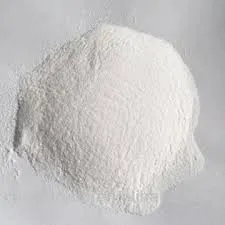
Nov . 16, 2024 12:09 Back to list
hydroxyethyl cellulose uses
The Versatile Uses of Hydroxyethyl Cellulose
Hydroxyethyl cellulose (HEC) is a non-ionic, water-soluble polymer derived from cellulose, which finds extensive applications in various industries due to its desirable properties. This natural fiber derivative is chemically modified to enhance its functionality, making it indispensable in fields ranging from pharmaceuticals to construction. In this article, we'll explore the diverse uses of hydroxyethyl cellulose and its significance in different sectors.
1. Pharmaceutical Applications
One of the primary uses of hydroxyethyl cellulose is in the pharmaceutical industry, where it serves as a thickening agent, stabilizer, and emulsifier in various formulations. HEC is commonly employed in the formulation of gels, creams, and ointments. Its ability to improve the viscosity of topical products is crucial for enhancing the spreadability and stability of pharmaceutical formulations. Additionally, HEC is used in controlled-release drug delivery systems, where it helps to modulate the release of active ingredients over time, ensuring more consistent therapeutic effects.
The cosmetic industry also capitalizes on the properties of hydroxyethyl cellulose. Its thickening and stabilizing capabilities make it a popular ingredient in various personal care products, including shampoos, conditioners, lotions, and creams. By improving viscosity and providing a smooth texture, HEC enhances the sensory characteristics of these formulations. Furthermore, as a biodegradable and non-toxic compound, it aligns with the growing consumer demand for sustainable and eco-friendly products, contributing to its popularity in cosmetic formulations.
3. Food Industry
In the food sector, hydroxyethyl cellulose serves as a food additive, known for its thickening, gelling, and stabilizing properties. It is commonly used in gluten-free and low-fat products to improve texture and mouthfeel. HEC can mimic the properties of gluten in baking, making it an essential ingredient in gluten-free flours and mixes. Furthermore, it is employed in sauces, dressings, and dairy products to enhance viscosity and prevent separation, ensuring a consistent and appealing product for consumers.
4. Construction and Building Materials
hydroxyethyl cellulose uses

HEC plays a significant role in the construction industry, particularly as an additive in cement-based products. It is used in tile adhesives, grouts, and plasters, where it improves water retention, workability, and adhesion. When added to cement mixtures, hydroxyethyl cellulose helps to prevent premature drying and cracking, enhancing the durability of construction materials. Its ability to retain moisture is crucial for the curing process of cement, ensuring the strength and longevity of structures.
5. Paints and Coatings
In the realm of paints and coatings, hydroxyethyl cellulose is appreciated for its thickening and stabilizing properties. It helps increase the viscosity of water-based paints, allowing for better application and finish. HEC also acts as a suspending agent, preventing the settling of pigments and other solid components in paint formulations. The use of hydroxyethyl cellulose in coatings contributes to improved gloss, spreadability, and overall performance, making it a favored choice among manufacturers.
6. Textile Industry
The textile industry utilizes hydroxyethyl cellulose as a size agent, which aids in the weaving process by providing strength and protection to fibers. It enhances the dyeing and finishing processes of textiles, ensuring that fabrics achieve the desired color uniformity and smooth texture. Additionally, HEC is used in printing pastes, where it helps maintain the viscosity and consistency of inks, leading to high-quality prints on various fabric types.
7. Agriculture
In agriculture, hydroxyethyl cellulose is gaining attention for its role in controlled-release fertilizers and soil conditioners. Its water-absorbing capabilities aid in moisture retention, ensuring that nutrients are available to plants over an extended period. This helps improve plant growth and yield while reducing the need for frequent fertilization.
Conclusion
Hydroxyethyl cellulose is a versatile compound with a wide array of applications across multiple industries. Its unique properties, such as water solubility, thickening ability, and stabilizing effect, make it an invaluable ingredient in pharmaceuticals, cosmetics, food products, construction materials, paints, textiles, and agriculture. As industries increasingly seek sustainable and effective solutions, the importance of hydroxyethyl cellulose is likely to continue growing, underscoring its significance in modern applications.
-
tile-bonding-additives-for-stronger-bonds
NewsAug.22,2025
-
construction-grade-rdp-for-wholesale-needs
NewsAug.22,2025
-
trusted-wholesale-hec-partners
NewsAug.22,2025
-
hec-solutions-for-industrial-excellence
NewsAug.22,2025
-
construction-additives-need-hpmc-essentials
NewsAug.22,2025
-
hpmc-versatile-cellulose-ether-for-industries
NewsAug.22,2025







